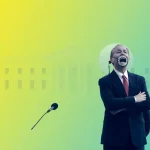RFK Jr's anti-vaccine beliefs influence CDC, says ex-director

The ongoing debate over vaccine safety and efficacy has taken a dramatic turn with the recent testimonies from former officials of the Centers for Disease Control and Prevention (CDC). With Robert F. Kennedy Jr. now at the helm, concerns are mounting regarding the future of public health policies, particularly in relation to childhood vaccinations. This article dives into the implications of these changes and the testimonies that reveal a troubling shift away from science-based decision-making.
the ousting of monarez and its implications
The ousting of Susan Monarez from her position as CDC director has raised eyebrows and sparked significant controversy. Serving for only 29 days, Monarez's tenure ended abruptly amidst allegations of political interference in public health recommendations. Her testimony before the Senate Committee on Health, Education, Labor, and Pensions (HELP) highlighted her refusal to comply with Kennedy's demands to approve vaccine recommendations without scientific backing.
Monarez stated that one of the primary reasons for her dismissal was her resistance to changes that could undermine the integrity of childhood vaccination guidelines. This incident reflects a broader trend of politicizing public health, where scientific evidence is increasingly sidelined in favor of personal beliefs.
politicization of public health
The testimony presented by Monarez and Dr. Debra Houry, a former chief medical officer at the CDC, underscores a troubling trend: the politicization of public health decisions. Both officials spoke about the implications of Kennedy's anti-vaccine agenda, which they argued threatens the foundational principles of evidence-based medicine.
- Refusal to engage with CDC scientists and experts
- Promotion of misinformation regarding vaccine safety
- Attempts to influence CDC recommendations based on personal beliefs
This politicization is not just a theoretical concern; it has real-world consequences. For instance, during a measles outbreak, Houry revealed that Kennedy rejected updates from experts and spread misinformation about the effectiveness of measles vaccines.
anti-science agenda driving policy
Dr. Houry's remarks during the testimony emphasized a stark contrast between the scientific community and Kennedy's anti-vaccine stance. She articulated that vaccines are both safe and effective, a position supported by numerous reputable medical organizations. Yet, Kennedy's actions reflect a blatant disregard for this consensus, instead promoting his unfounded beliefs.
Some of the key points made during the testimony include:
- Kennedy's refusal to work with CDC scientists
- Promotion of unproven treatments for measles
- Claims about vaccines containing fetal tissue, which were corrected as misinformation
These actions not only endanger public health but also undermine trust in federal health institutions, potentially leading to decreased vaccination rates and increased risks of outbreaks.
kennedy's views on the cdc and its scientists
Monarez’s testimony painted a disturbing picture of Kennedy’s views on CDC scientists. He reportedly labeled the agency as the "most corrupt federal agency in the world," making inflammatory statements about its employees and their motivations. The implications of such rhetoric are profound, as they can diminish public trust in health recommendations and exacerbate vaccine hesitancy.
In her exchange with Senator Maggie Hassan, Monarez reaffirmed that Kennedy's claims about the lack of scientific backing for vaccines were false. She emphasized the importance of maintaining the integrity of scientific data in public health discussions, especially in an era where misinformation can spread rapidly.
gag orders and suppression of scientific discourse
A particularly alarming aspect of Monarez's testimony was the revelation of what she described as "gag orders." According to her, Kennedy instructed her to avoid any communication with CDC scientists and instead engage only with political appointees aligned with his views. This suppression of dialogue can lead to a dangerous environment where critical scientific discourse is stifled.
Key points regarding Kennedy's directives included:
- Prohibition against communicating with career scientists
- Promotion of political allies over experienced public health officials
- Encouragement to align recommendations with personal beliefs rather than scientific evidence
The consequences of such directives could severely hamper the CDC's ability to respond effectively to public health crises, undermining years of progress in disease prevention.
looming restrictions on vaccines
The discussions surrounding possible vaccine restrictions under Kennedy's leadership have raised alarm bells among health professionals. Dr. Houry pointed out that Kennedy's team has already rejected critical discussions about the hepatitis B vaccine—specifically, the birth dose that protects infants from chronic infections.
The Advisory Committee on Immunization Practices (ACIP) is expected to meet soon to discuss this vaccine, and there are fears that those appointed by Kennedy may attempt to rescind vital recommendations. This could have dire consequences for public health, particularly for vulnerable populations.
Dr. Cassidy, a member of the committee, passionately defended the importance of the birth dose, citing a dramatic reduction in hepatitis B infections following its introduction. He highlighted that before 1991, thousands of infants were infected annually, a rate that has significantly declined due to vaccination efforts.
the future of public health under kennedy
The testimonies provided by Monarez and Houry present a grim picture of the future of public health under Kennedy's leadership. As vaccine misinformation continues to proliferate, the CDC's ability to operate effectively and base its recommendations on sound scientific evidence is increasingly compromised.
This situation serves as a reminder of the critical importance of defending the integrity of public health institutions. The consequences of allowing personal beliefs to dictate health policy could extend far beyond individual decisions about vaccinations; they could threaten the health and safety of entire populations.
For further insights into this ongoing issue, you can watch a related testimony here:




Deja una respuesta